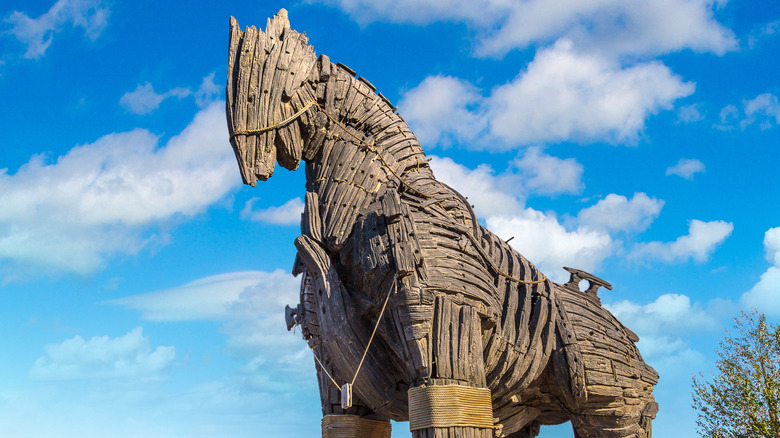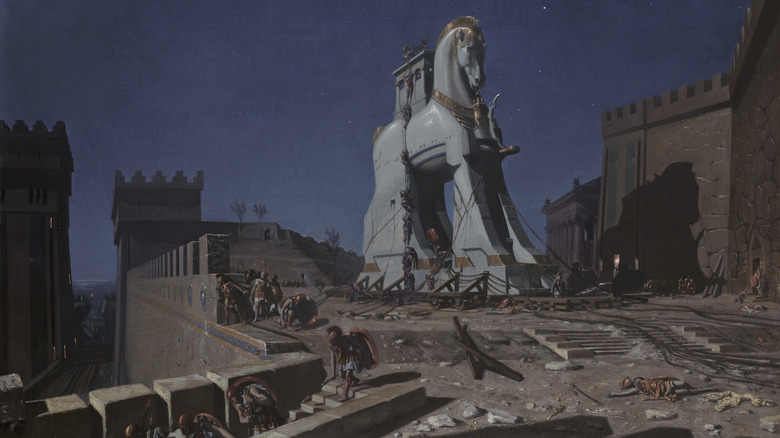The Trojan Horse Debate Explained: Did It Exist?
The Trojan War has captivated imaginations for centuries, with Homer's epic poems centered on the conflict still being invoked in literature in the 21st century. Accounts blend what could at least pass for actual history with myth, such as Achilles being impervious to mortal weapons, as well as the presence of Amazons and constant divine intervention throughout the war.
When the subject of the Trojan War comes up, many think of Achilles and his exploits, the Trojan prince Paris taking Helen across the Aegean, and the ruse that was the Trojan Horse. This massive wooden structure was a false offering from the supposedly departing Greeks, an offering for Troy's temple to Poseidon (via Britannica). The night that the Trojans brought it within the city walls, Greek soldiers concealed inside the horse brought down the city gates and let their compatriots in, dooming the city. However, studies of the story's validity remain inconclusive. Was this titanic wooden horse real in the first place, or was it a mere literary invention?
The Trojan Horse might not have been all that
Even figures like Ancient Greece's dramatist Euripides doubted whether it was real, according to All That's Interesting. While some archaeologists have cited a concentration of wooden planks excavated in Turkey as having come from the famed horse, in truth they could have been there for any number of reasons. There is no telling for certain whether the Trojan Horse existed, but much like the site many have identified as the location of Troy itself, history may have muddled what it really was (via Live Science).
It's possible that it was instead an analogy for, or mistranslation of, a siege engine covered in flame-retardant wet horse hides to protect against fire arrows. It might have been a ship transporting soldiers, perhaps with a horse-shaped bow in keeping with the maritime origins of equines in Greek mythology. Or maybe it was something non-physical, like a hypothetical Poseidon/horse-based ritual that the Greeks somehow used to infiltrate the city.
It is not without precedent for names and their meanings to be twisted so drastically. The golden city of El Dorado sought by conquistadors was in truth the name of the Muisca people's royal coronation ceremony, where the soon-to-be king covered himself in gold before diving into a lake (via World History Atlas).

